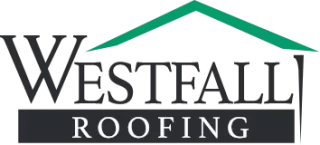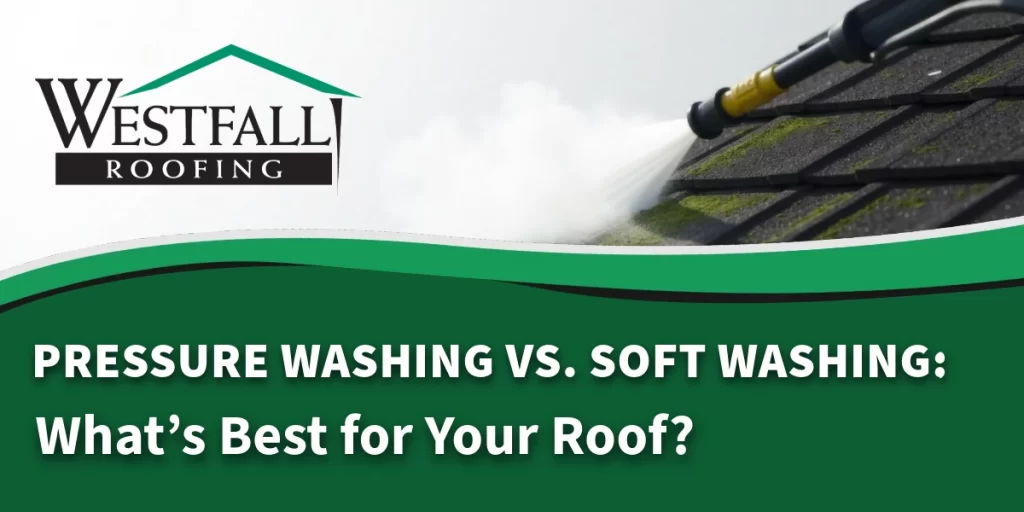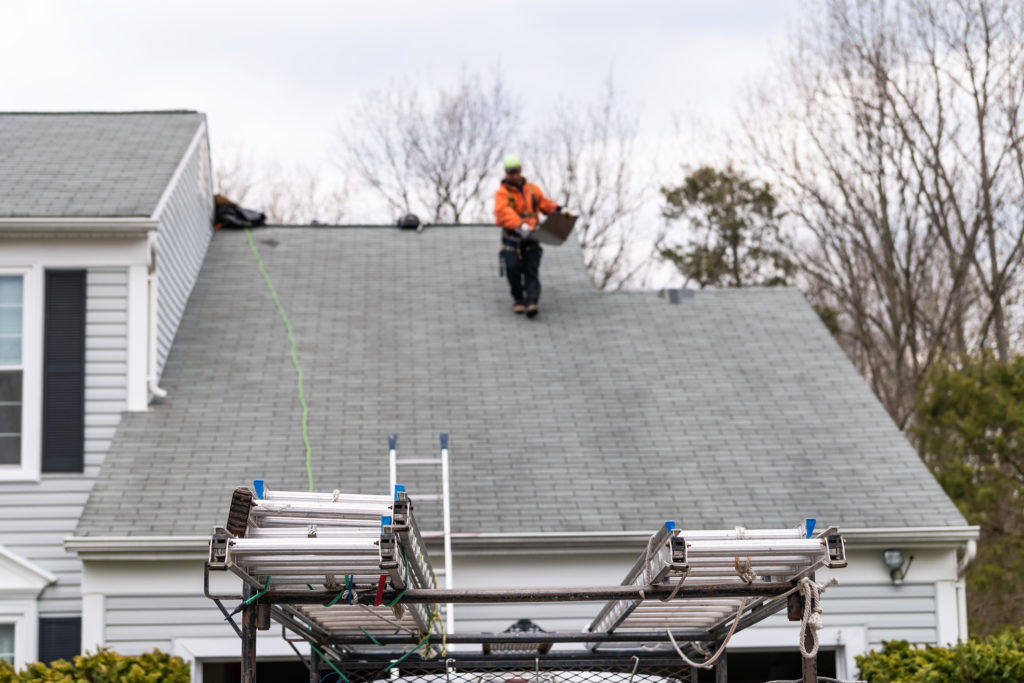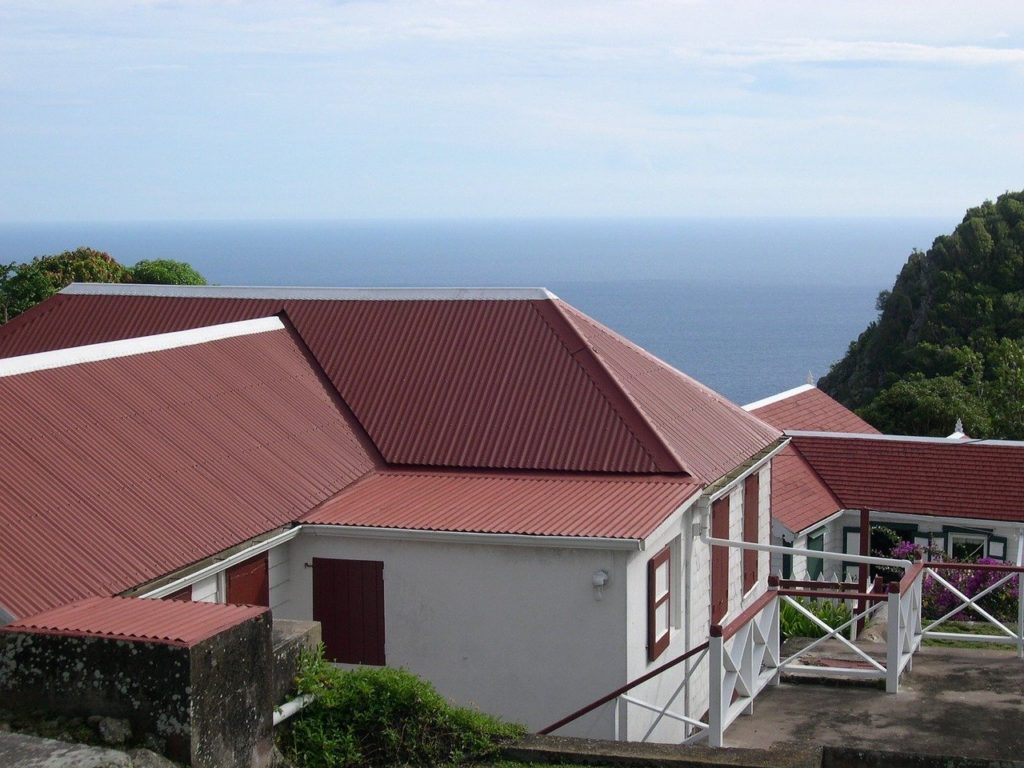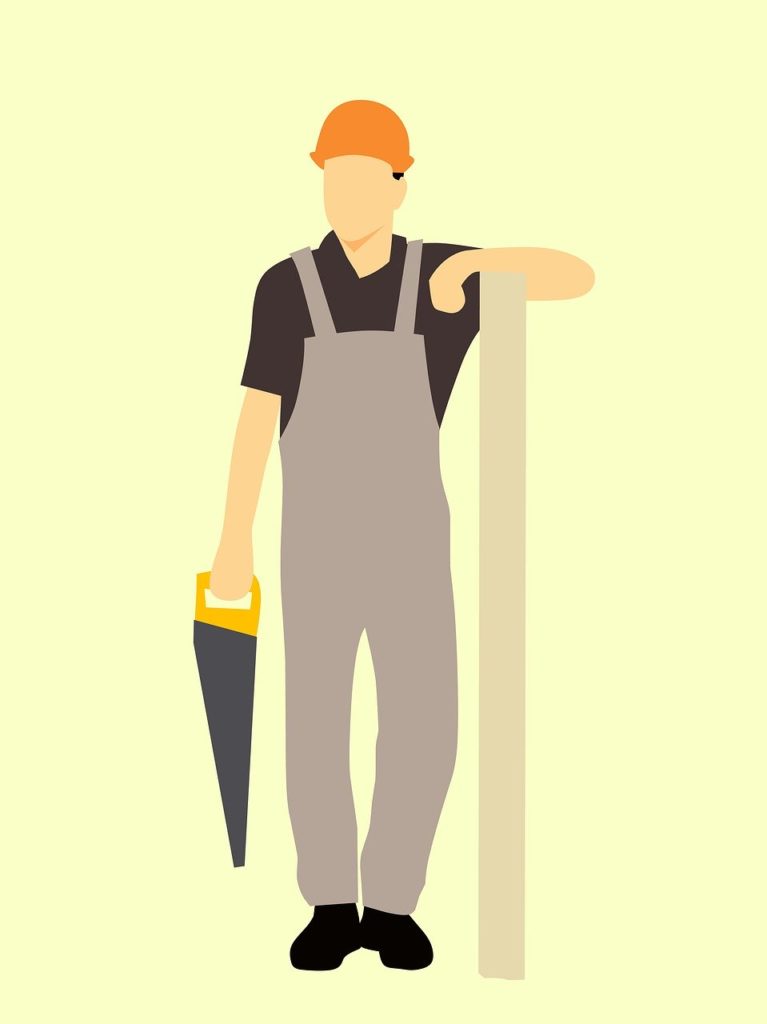Many homeowners feel confused about selecting between pressure washing and soft washing. This guide helps you determine the safest and most effective method for your roof type. Westfall Roofing prioritizes long-term roof health and manufacturer-backed best practices.
The Importance Of Protecting A Roof
Your roof is more than just a protective barrier—it’s your home’s first shield against the forces of nature. But as time passes, it can collect layers of dirt, debris, and unwanted growths like algae and moss. These not only trap moisture but also eat away at your roofing materials, setting the stage for leaks and potential structural damage if left unchecked.
Regular cleaning offers a couple of key benefits:
- May prevent premature aging and deterioration of roofing materials and gutters
- Preserves curb appeal and may help with property value
A clean roof is not only about aesthetics; it may help protect your significant investment.
Identifying The Ideal Roof Cleaning Method
Not all roofs are created equal, and neither are the methods for cleaning them. The appropriate cleaning technique mainly depends on your roofing material.
Asphalt Shingles: This popular roofing material is vulnerable to damage from high-pressure washing. The force can dislodge protective granules, resulting in premature deterioration.
Clay or Concrete Tiles: Although more durable than asphalt, these materials can crack under excessive pressure. Additionally, water may seep between the tiles with high-pressure methods.
Metal: Generally more resistant to pressure washing; however, improper techniques can still damage protective coatings or cause dents. Homeowners should exercise reasonable care when cleaning.
Generally, soft washing is safer for most roofing materials, whereas pressure washing should be approached with extreme caution, if used at all.
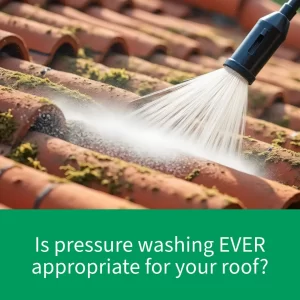
Understanding Washing Frequency For A Roof
The frequency with which you should clean your roof depends on several factors:
- Local climate: Humid environments promote faster growth of algae and moss
- Tree coverage: Overhanging branches lead to more debris and organic growth
- Roof pitch: Steeper roofs typically gather less debris, but may be harder to clean
- Local air quality: Areas with higher pollution levels may require more frequent cleaning
Soft Wash vs. Pressure Wash
Understanding the key differences between these methods is essential for informed roof maintenance decisions.
| Factor | Soft Washing | Pressure Washing |
| Water Pressure | Low (under 500 PSI) | High (1,500-4,000 PSI) |
| Cleaning Method | Chemical solutions + gentle rinse | Physical force of water |
| Risk of Damage | Minimal when properly done | Significant, especially on asphalt and wood |
| Effectiveness on Biological Growth | Excellent (kills at the root) | Temporary (removes surface only) |
| Longevity of Results | 6-12 months+ | 3-6 months |
| Environmental Impact | Higher (chemical-based) | Lower (mainly water) |
| Cost | Generally higher initially | Often less expensive |
Soft Washing A Roof
Soft washing is a cleaning method that uses specialized solutions instead of high pressure to remove dirt and biological growth. Here’s how the process works:
- Preparation: The area surrounding the house is protected with covers for plants and outdoor furniture.
- Application: A biodegradable cleaning solution is sprayed onto the roof using low-pressure equipment.
- Dwell time: The solution should sit for 15-20 minutes to break down organic matter and kill root growth.
- Gentle rinse: A low-pressure rinse effectively eliminates loosened debris and cleaning solution.
- Preventive treatment: Optional application of preventive solutions to inhibit future organic growth.
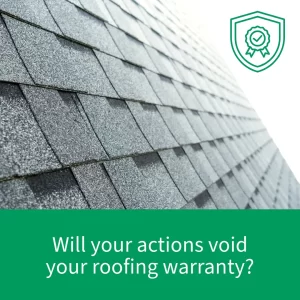
Adhering To Roofing Warranties
Your roof represents a significant investment, often protected by manufacturer warranties that can span decades. Improper cleaning methods can void these warranties, leaving you financially responsible for preventable damage.
Common warranty-voiding actions include:
- Using excessive water pressure
- Applying unapproved, unsafe, or abrasive chemical solutions
- DIY cleaning that leads to visible damage
- Not adhering to manufacturer-recommended cleaning procedures
When in doubt, hire certified professionals who are familiar with your specific roofing material and can clean your roof without compromising warranty protection. By understanding your roof’s specific needs and following manufacturer guidelines, you can maintain a clean, functional roof that protects your home throughout its expected lifespan.
Involving A Roofing Professional
Westfall Roofing prioritizes long-term roof health and manufacturer-backed best practices. While we do not offer pressure washing services, we also don’t recommend it, especially for shingle roofs, as it can compromise materials if not done correctly. Instead, we typically advise soft washing, a gentler method that uses low-pressure water and manufacturer-approved cleaning solutions.
Contact us today to schedule your complimentary appointment.
